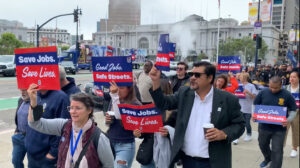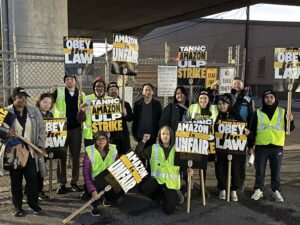The labor movement now: Significant increase in union election petitions
June 29, 2022
The National Labor Relations Board (NLRB) has reported that union election petitions have increased by 57% during the first half of Fiscal Year 2022 (October 2021 – March 2022). From October 2020 to March 2021, there were only 748 election petitions. As of March 31, 2022, there were 1,174 election petitions filed with the NLRB. If this trend in union election petitions continues through the rest of the year, it will be the highest annual total of election petitions filed in the last ten years.
Why so many more Union election petitions? The labor movement is picking up speed nationwide, organizing big companies such as Starbucks and Amazon. The high visibility of union campaigns, like the ones at Starbucks and Amazon facilities, has clearly inspired other workers to Unionize and the high demand for skilled and unskilled workers has clearly emboldened non-Union workers to take risks.
However, an increase in election petitions means a greater demand on NLRB staff. In addition to an increase in election petitions, the NLRB also saw a 14% increase in unfair labor practice charges. Both election petitions and unfair labor charges require many resources from the NLRB. While President Biden requested a 16% increase in the NLRB budget, it is not enough to fully address the Agency’s staffing needs – and the NLRB’s budget has remained the same for decades.
Congressional Democrats are also calling for an increase in the NLRB budget to ensure that workers and unions are fully protected. NLRB General Counsel Jennifer Abruzzo said, “While our dedicated board agents continue to process petitions and conduct elections, investigate and prosecute statutory violations, and obtain remedies for victims of unfair labor practices, the NLRB needs a significant increase of funds to fully effectuate the mission of the Agency.”
Of course, the result of a victorious Union election is not a contract but an obligation on the part of the employer to bargain with the Union. One has to wonder – given the money these companies can put into fighting the Union — whether trying to organize Starbucks store by store or Amazon warehouse by warehouse is a battle any Union can win. However, the value of Union representation is now clear to far more workers than it has been in many years and that energy should put renewed power in Unions.





